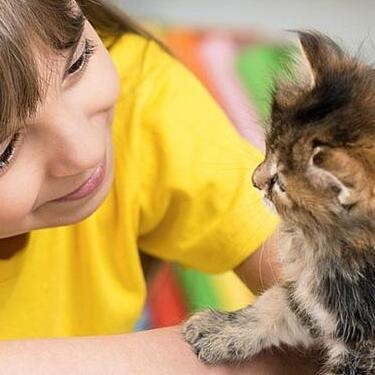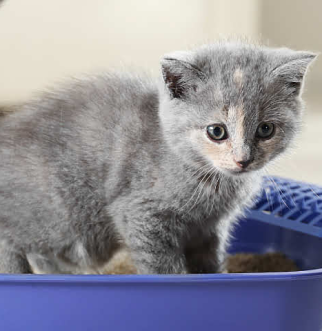
-
Find the right food for your pet
Take this quiz to see which food may be the best for your furry friend.
Find the right food for your pet
Take this quiz to see which food may be the best for your furry friend.
Featured products
 Adult Healthy Cuisine Roasted Chicken, Carrots & Spinach Stew Dog Food
Adult Healthy Cuisine Roasted Chicken, Carrots & Spinach Stew Dog FoodDelicious roasted chicken paired with tender vegetables in a succulent stew
Shop Now Adult 7+ Perfect Digestion Chicken, Whole Oats & Brown Rice Recipe Dog Food
Adult 7+ Perfect Digestion Chicken, Whole Oats & Brown Rice Recipe Dog FoodScience Diet's breakthrough nutrition supports ultimate digestive well-being & healthy microbiome for dogs age 7+
Shop Now Small & Mini Savory Stew with Chicken & Vegetables Dog Food
Small & Mini Savory Stew with Chicken & Vegetables Dog FoodA delicious complement to the nutrition of Science Diet Small & Mini 7+ dog food
Shop NowFeatured products
 Adult 7+ Tender Tuna Dinner Cat Food
Adult 7+ Tender Tuna Dinner Cat FoodWith delicious chunks in a decadent gravy
Shop Now Adult 7+ Senior Vitality Chicken & Vegetable Stew Cat Food
Adult 7+ Senior Vitality Chicken & Vegetable Stew Cat FoodImproves Everyday Ability to Get Up & Go
Shop Now Adult Savory Entrée Can Variety Pack Cat Food
Adult Savory Entrée Can Variety Pack Cat FoodPrecisely balanced nutrition with the delicious taste of savory minced chicken to help fuel the energy needs of cats during the prime of their life
Shop Now -
Dog
- Dog Tips & Articles
-
Health Category
- Weight
- Food & Environmental Sensitivities
- Urinary
- Digestive
- Joint
- Kidney
-
Life Stage
- Puppy Nutrition
- Adult Nutrition
- Senior Nutrition
Cat
- Cat Tips & Articles
-
Health Category
- Weight
- Skin & Food Sensitivities
- Urinary
- Digestive
- Kidney
-
Life Stage
- Kitten Nutrition
- Adult Nutrition
Featured articles
 Does My Pet Hate Me?
Does My Pet Hate Me?Learn tips for bonding with your pet if you've ever thought, 'My dog doesn't like me, or 'Why do I have a standoffish cat?'
Read More Why Are Dogs and Cats So Cute?
Why Are Dogs and Cats So Cute?If waggy puppy dog tails and furry kitten yawns make you swoon, you're not alone. Why are cats so cute? And, dogs too! Let's find out!
Read More Do Dogs and Cats have Belly Buttons?
Do Dogs and Cats have Belly Buttons?Learn whether cats & dogs have belly buttons like humans, what the function is, and if there are any health concerns associated with it.
Read More -


Feeding your cat properly is critical during pregnancy and nursing. Malnutrition can result in low birth weight of the kittens and put them at risk for several health conditions resulting in a reduced survival rate.1 The goal is optimal nourishment for both the mother and her kittens. Specifically, here are nutritional priorities:
- Increased energy from calories for the growth of kittens and milk production for the mother
- Increased protein for growth and development of the kittens
- Increased fat to meet the high demand for calories of the mother
- Increased calcium and phosphorus for bone growth of kittens and milk production of their mother
- High digestibility to provide more calories in a smaller amount of food
Key questions and answers about pregnancy and nutritional priorities.
Why are increased energy and fat so important?
Increased energy and fat are important because pregnant and nursing cats have extremely high energy needs. Nursing is the most energy-demanding stage of a cat’s life. Nursing cats have 2 to 6 times the energy requirements of a healthy adult cat.
What is digestibility and why is it important?
Digestibility is how much eaten food is actually absorbed by the cat’s body. High digestibility is important because energy needs are very high and there is less physical space in the abdomen of pregnant cats.
What should I feed my pregnant or nursing cat?
It is extremely important to feed your pregnant or nursing cat a food that provides the increased nutrition she needs. We recommend feeding Hill’s® Science Diet® Kitten Food formulas as soon as you discover your cat is pregnant. These formulas are rich in essential nutrients and support development of the kittens during pregnancy. It’s always best to talk to your veterinarian about a food recommendation for your pregnant or nursing cat.
What Science Diet® products are available for pregnant or ,nursing cats?
How should these foods be fed to pregnant or nursing cats?
- Pregnant cats: Feed the suggested amount on the packaging. Continue to feed a kitten food to the mother until her kittens are weaned.
- Nursing cats: Leave food available for the mother at all times after the kittens are born. This will ultimately help to wean the kittens to a regular food and provide the mother with high-energy food she will need during this time.
How long is a cat pregnant?
Typical gestation (pregnancy) averages 63-65 days. 2 We recommend that you see a veterinarian weekly during pregnancy and nursing to assess weight and food intake. Please speak with your veterinarian to determine how often your cat should be examined during pregnancy and after the birth of her kittens.


Tasty Tips
When do I wean my kittens?
Weaning is usually a gradual process. Most kittens begin eating solid food between 3-4 weeks of age. Weaning should be effectively completed between 6-10 weeks of age. 3
Initial kitten care priorities.
It is recommended that your keep a record of your kitten’s weight, stools, development and activity every 1 or 2 days (especially in the first two weeks after birth) 4 and schedule a check-up with your veterinarian.
- 1 Small Animal Clinical Nutrition, 4th Edition. Reproducing Cats; Pregnancy p. 321
- 2 Small Animal Clinical Nutrition, 4th Edition. Reproducing Cats; Assessment p. 321
- 3 Small Animal Clinical Nutrition, 4th Edition. Reproducing Cats; Weaning; p. 328
- 4 Small Animal Clinical Nutrition, 4th Edition. Growing Kittens; p.329


One of our staff authors prepared this article for you
Related products
Related articles

Discover how to train your cat, starting with very basic first steps that both reward good behavior and discourage the bad.

What is the best food for an overweight cat? Learn all about weight control food for cats, including what's in it and how it works.

How do you get a cat to lose weight? Learn all about cat foods for weight loss, including how to choose weight control cat food and exercise tips.

Cats are naturally very clean and chances are your kitten will already have learned how to use the litter box from her mother before she comes to live with you.

Put your cat on a diet without them knowing
Our low calorie formula helps you control your cat's weight. It's packed with high-quality protein for building lean muscles, and made with purposeful ingredients for a flavorful, nutritious meal. Clinically proven antioxidants, Vitamin C+E, help promote a healthy immune system.
Put your cat on a diet without them knowing
Our low calorie formula helps you control your cat's weight. It's packed with high-quality protein for building lean muscles, and made with purposeful ingredients for a flavorful, nutritious meal. Clinically proven antioxidants, Vitamin C+E, help promote a healthy immune system.

